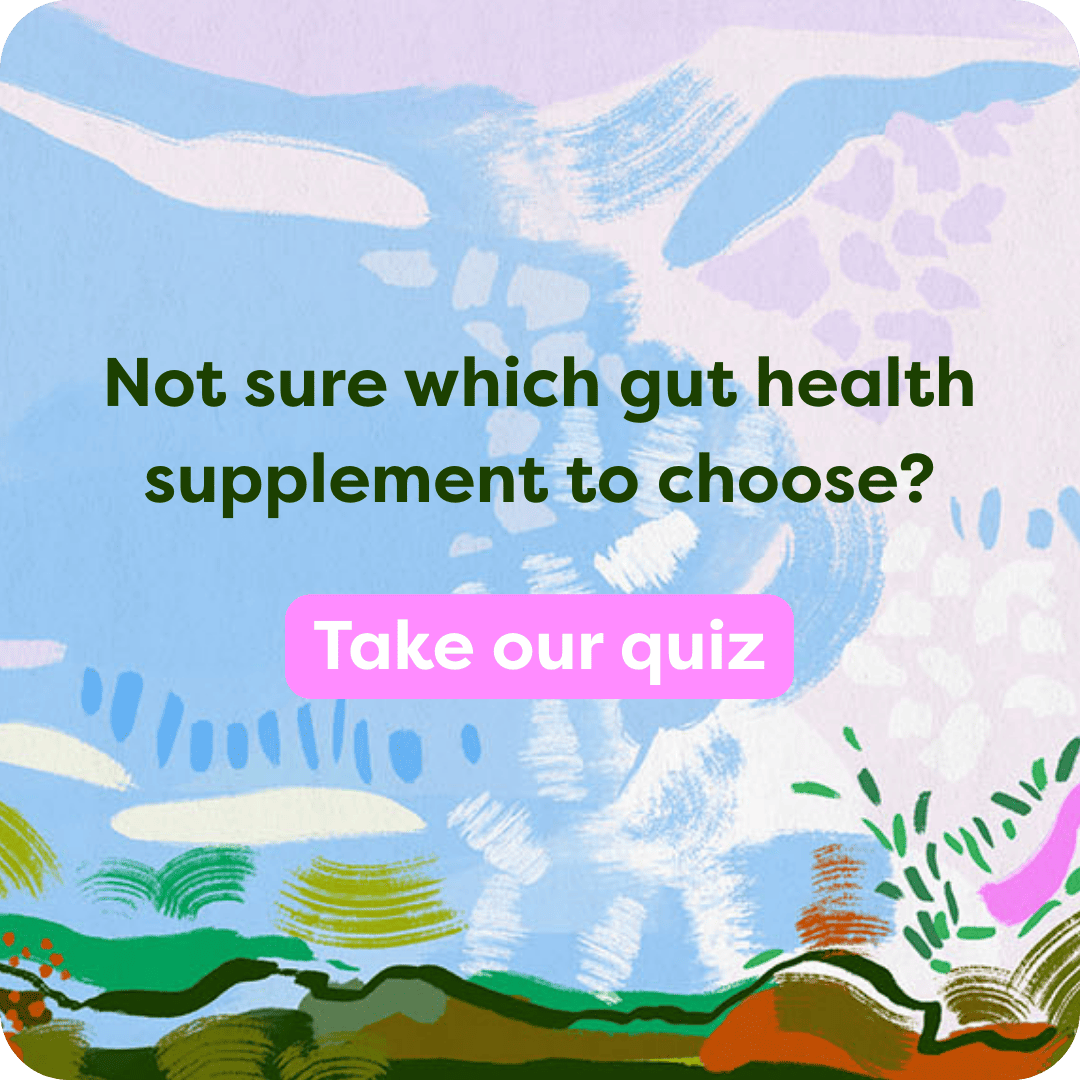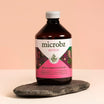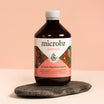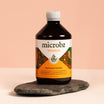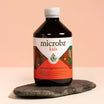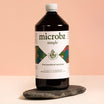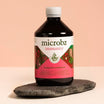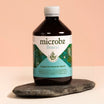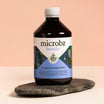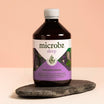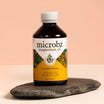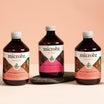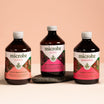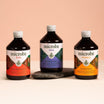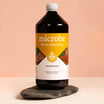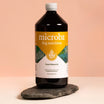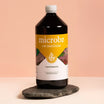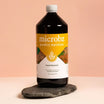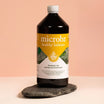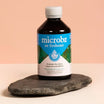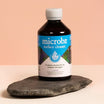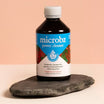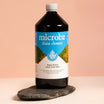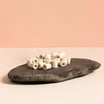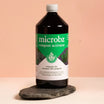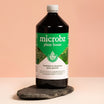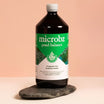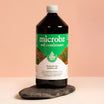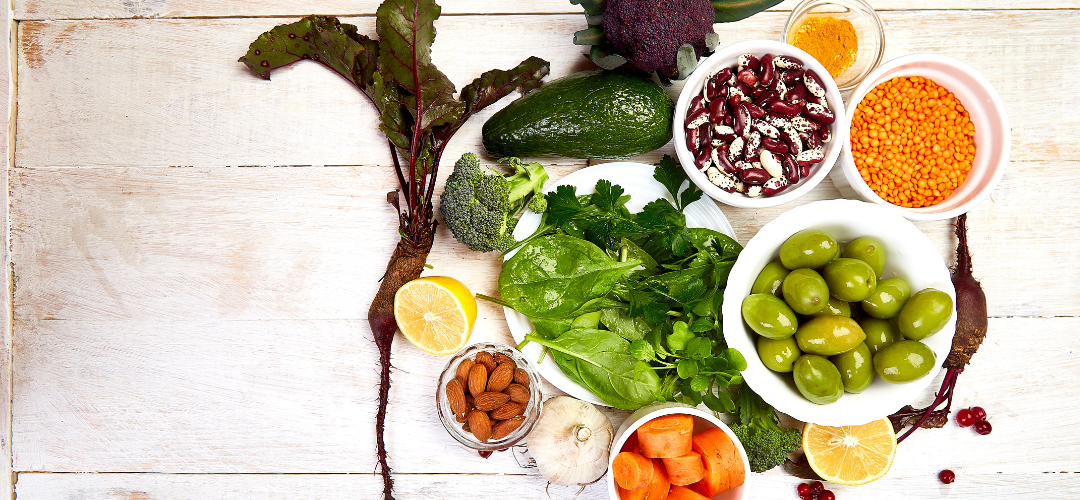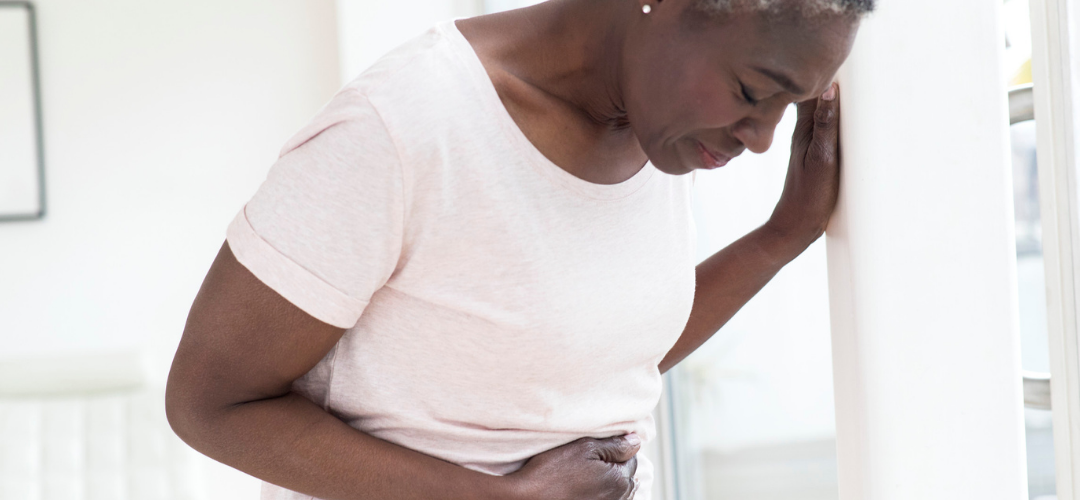The liver is well named - it is a vital organ to help us live, and yet so often taken for granted. We wouldn't be able to survive one day without our liver, so it benefits us to find out more about it and, crucially, the best way to look after it. Recent studies show that the gut-liver axis and effective microbes are a pretty important part of the picture.
What is the liver and what does it do?
Apart from our skin, the liver is the biggest organ in our body and performs around 500 different functions (told you it was important) including sending energy to the brain, balancing chemicals, and fighting infections. The liver is effectively your body's sorting room. The blood from your stomach and intestines passes through the liver to be processed, your liver then balances the nutrients and chemicals within it for the rest of your body to use most effectively. It also creates a lovely-sounding substance called bile which helps carry away all the waste and toxic by-products.
What are the warning signs of a damaged liver?
Liver disease can be an inherited condition, but there are also lots of lifestyle factors which can contribute to an unhealthy liver. Some of the warning signs of an unhealthy liver are:
- Skin and eyes with a yellowish appearance
- Itchy skin
- Dark urine colour
- Bruising easily
- Swelling in the ankles and lower legs
- Chronic fatigue
We recently caught up with Chinese medicine specialist Andrea on this Instagram live who explained that there is a strong link between liver health and emotional state. 'There are some other symptoms that show that your liver might not be in a good place. Your liver hugely affects your emotions, so if you're feeling sluggish, experiencing mood swings, are having snappy outbursts or are lacking motivation, that could be coming from your liver health.'
She also shared that in Chinese medicine the liver is known as 'The governor of the blood' and that heart health really starts with liver health, because that will determine the quality of the blood in your system.
What contributes to an unhealthy liver?
- One of the main factors contributing to an unhealthy liver is alcohol. It is toxic to the liver and causes inflammation and, in the case of chronic or excessive alcohol intake, the accumulated fat near the liver reduces its functional capability.
- One of the quickest growing forms of liver disease is non-alcoholic fatty liver disease (NAFLD) which is where a build-up of fat accumulates around the liver and can, over time, contribute to more serious illnesses. You can combat this as much as possible by maintaining a healthy weight, exercising regularly, and eating a well-balanced diet avoiding processed foods and refined sugars.
- Liver disease can also be caused by Hepatitis infections, so it's important to follow advice when it comes to safety with needles, sex and any damage to your skin.
- Toxins are bad news to our bodies generally but can cause harm to the cells in our liver, so avoiding toxic substances in our everyday lives can go a long way to protecting your liver from harm. Use natural products where possible and don't smoke!
There are several health & lifestyle factors that can contribute to a healthier liver, particularly your nutrition. Interestingly, something that could really affect it is not just what you eat, but when you eat. Health expert Andrea explained that your liver really gets to work overnight, specifically between the hours of 1am - 4am, working hard to flush out and clean. Giving your liver the time to do this effectively could be key. She suggests eating your evening meal earlier, giving as much time as possible between food consumption and that vital night-time liver cleanse.
What can you do to support the liver?
- Try a hot water with lemon first thing in the morning. It is known to strip the body of toxins.
- Try to avoid toxins and heavy metals in your food and ensure tap water is filtered.
- Avoid purchasing products for your home and environment that have toxins in them, pay special attention to deodorants, fragrances and cookware.
- Stop eating or drinking at least 3 hours before you sleep to give your body time to detoxify.
What roles do microbes play in liver health?
An ever-increasing number of studies into microbes and probiotics show the role both play in our health. One example of a study to determine the effects of probiotics for fatty liver in children and adolescents concluded that: 'The present findings suggest that a course of probiotics can be effective in improving paediatric NAFLD.'
Another study suggested that 'restoration and modulation of intestinal flora through the use of probiotics is potentially an emerging therapeutic strategy.' Some of the strains of microbes that were used in these studies including Lactobacillus acidophilus, Bifidobacterium lactis, Bifidobacterium bifidum, Lactobacillus rhamnosus and L. Casei, are all present in microbz detox (previously Bio Live Liver.)
We know that microbes play an important role within our bodies, digesting, secreting vital enzymes, and affecting various levels of chemicals and hormones. It has been shown that taking probiotics to help with digestion primarily, and all the subsequent processes digestion affects, can be beneficial.
The microbiome is now recognised as being essential in developing a healthy immune system. Gut bacteria help break down food and absorb nutrients. Without the right balance of microbes, nutrition production and digestion are affected, and can have a knock-on effect across the whole body. The liver and the intestines communicate extensively through the gut-liver axis; depressed liver function influences the gut lining and is associated with leaky gut and a healthy gut keeps the liver producing bile and glucose, and metabolising lipids which are essential for energy.
As in so many areas of health and wellbeing it is important to simplify our actions to lead a smart balanced life. This means eat healthily, avoid toxins, encourage a healthy microbiome and you will be well on your way to looking after a healthy liver and much more to boot!

